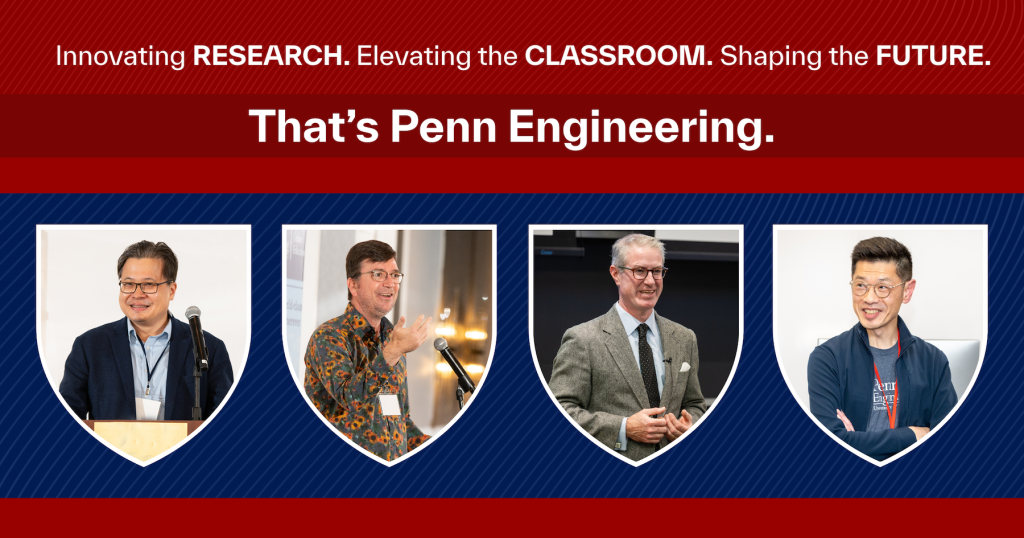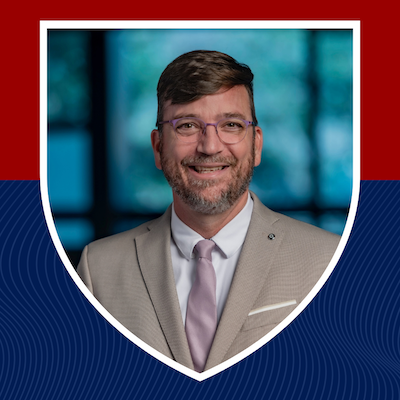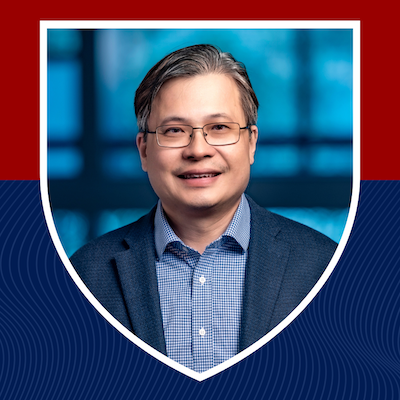Penn Engineering: The Why Behind the How

These aren’t just top engineers, they’re your teachers.
What do the people who write the rules of AI law, redefine deep learning, and reimagine medicine all have in common? They’re also your professors.
At Penn Engineering, the people driving breakthroughs aren’t standing apart from students – they’re right there in the classroom. That’s what sets Penn Engineering apart. Not just the programs. Not just the modalities. But the people who translate cutting-edge research into transformative learning experiences.
Chris Callison-Burch, Program Director for MSE-AI Online, sees this as a matter of principle: AI cannot thrive in silos. “AI demands an interdisciplinary approach,” he explains. That philosophy shapes his teaching as much as his research, with students experiencing the exact same rigor online as they would on campus.

“AI demands an interdisciplinary approach.”
For Senior Associate Dean Boon Thau Loo, the difference begins with faculty selection. “We don’t just pick any faculty,” he says. Faculty are highly vetted, chosen not only for their scholarship but for their ability to shape engineers who can think across domains. That’s why he describes Penn’s interdisciplinary culture as “AI plus X” – where AI converges with law, medicine, ethics, and beyond, equipping students to think across boundaries just as engineers must in the real world. “We collaborate widely, and that’s how we solve some of the hardest problems.”
“We collaborate widely, and that’s how we solve some of the hardest problems.”

Tom Farmer, Program Director for MCIT Online, sees the impact of this approach from a student’s vantage point. Applicants often begin by scanning the faculty roster, he explains, and they choose Penn because of who they’ll learn from. That trust continues once they’re in the classroom: the scale and diversity of online cohorts create constant feedback loops that keep courses dynamic, while faculty expertise ensures rigor never wavers.

“Because our students come from such diverse backgrounds, it helps make the classes very robust and fresh, in a constant mode of updating and change.”
Coming Soon
We are excited to introduce this new series, which will spotlight the professors who are redefining graduate education and advancing the next generation of elite engineers:
Innovating Research. Elevating the Classroom. Shaping the Future.
That’s Penn Engineering.
This series will take you inside Penn Engineering classrooms. And not just classrooms on campus — thanks to the flexibility of online programs, the global Penn Engineering classroom is everywhere our students are.
Over the coming months, you’ll meet professors whose work is reshaping their fields and whose teaching challenges students to:
- confront ethical and legal trade-offs before writing their first line of code.
- rethink deep learning by asking why learning itself is possible.
- bridge medicine and technology to improve care and equity.
- build resilient, secure systems that withstand real-world tests.
At Penn Engineering, the people driving discovery are also driving the classroom. That’s why the student experience here is not just rigorous - it’s transformative.
Stay tuned for the first featured story, coming soon, and get ready to learn more about these members of our world-class online faculty throughout the series:

In the meantime, you can explore Penn Engineering’s online master's degrees and discover how these programs can help you engineer your future.
MCIT Online
Master of Computer and Information Technology

MSE-DS Online
Master of Science in Engineering in Data Science
MSE-AI Online
Master of Science in Engineering in AI
